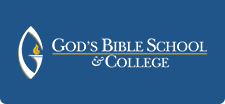Integration of Christian Faith and Counseling Theory
Course code: PRTH 530
An investigation of the various perspectives on the integration of Christian faith and counseling theory. Contemporary counseling theories will be presented and evaluated in light of an explicitly Christian theological framework.
Intended Outcomes
- An understanding of:
- The historical relationship between psychology and Christianity.
- The five views of the relationship between psychology and Christianity.
- A Wesleyan perspective of integration.
- Modern psychological theories in light of a biblical worldview.
- An appreciation for:
- The superior explanatory and evaluative power that a Christian understanding of people provides over non-Christian understandings.
- The fact that theology makes a difference, informing and enriching the practice of counseling.
- The ability to:
- Explain the strengths and weaknesses of each of the five views of the relationship between psychology and Christianity.
- Conceptualize counseling cases in a theologically-sensitive framework.
- Successfully defend a comprehensive theoretical approach to Christian counseling.
Assignment Overview
- Regularly assigned textbook and article readings.
- Weekly discussion forums on prompt question offered by the professor.
- Weekly live synchronous video class meetings.
- Three integration papers based on the three main textbooks.
- Pre- and post-course reflection papers.
Having now taken two graduate courses in counseling through God’s Bible School, I have a far greater and more stable foundation upon which to counsel parishioners and others seeking help.
Professor
Dr. Andrew Graham
Textbooks
- Theology for Better Counseling: Trinitarian Reflections for Healing and Formation by Virginia Todd Holeman.
- Psychology and Christianity: Five Views by Eric L. Johnson (editor).
- Modern Psychotherapies: A Comprehensive Christian Appraisal by Stanton L. Jones and Richard E. Butman (editors).


